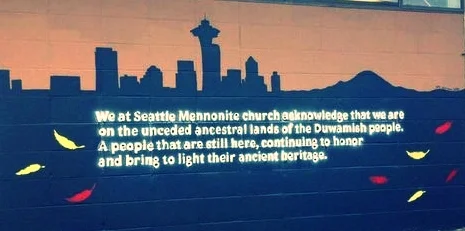Awareness and acknowledgment are important first steps, but knowledge alone is not enough. We have to dig deeper. How do we integrate this new knowledge into our behavior and our daily lives? How do we use our awareness to live in a way that doesn’t perpetuate our violent past?
These are complicated questions, but we can’t let their complexity paralyze us into total inaction. One step in the right direction, I think, can be found here: Real Rent Duwamish (realrentduwamish.org).
Real Rent Duwamish allows you to set up a monthly “rent” payment to the Duwamish Tribe for the right to live on land in their unceded territory.
Why monthly?
“While one-time donations are essential to the upkeep of the Longhouse, paying monthly rent represents a continuing effort and desire to acknowledge the Duwamish while recognizing that we are visitors on their land who are profiting from being here. Monthly giving keeps the land's original inhabitants on the forefront of our thoughts. Through our monthly contribution and acknowledgement, we can be more deeply connected to this wonderful place.”
What’s the right rent for you?
“Just as everybody’s financial situation is unique, so is the amount of rent that will feel right for you. You may choose to give a percentage of your income or monthly rent or mortgage, or perhaps there is another number that holds symbolic significance for you. For example, paying $54 a month could serve as a powerful reminder of the 54,000 acres of homeland that the Duwamish Tribe signed over to settlers in 1855. In the end, any amount is the right rent as long as it’s meaningful to you! Or, click here to try out this donation calculator.”
This is made all the more important in the case of the Duwamish Tribe by the fact that the tribe is not officially recognized by the federal government. They would truly have been erased if not for the Duwamish people who continue today to fight to maintain their heritage and their identity. It feels like literally the least we can do to support that effort as we sit on their land, benefitting from its theft.
As of today, my family is paying $54 a month to the Duwamish Tribe for the foreseeable future. When we’re able to do more, we will.











